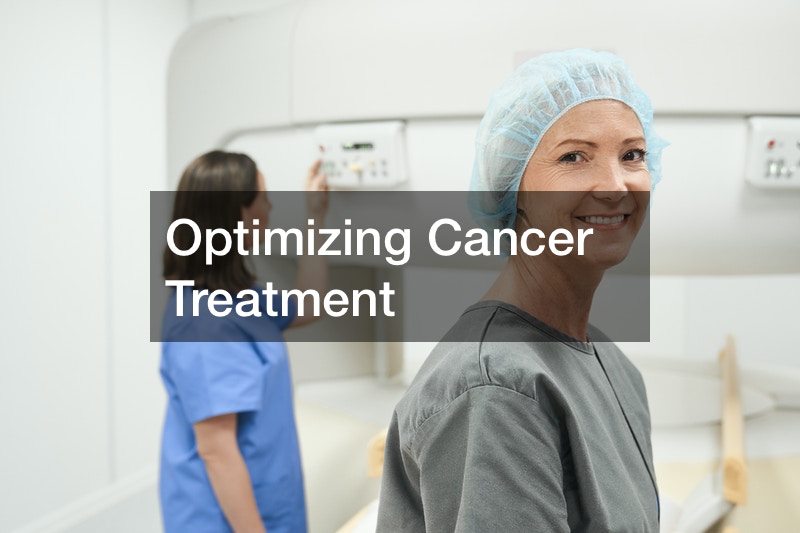
When it comes to cancer, you should try to prevent it as much as possible. The best ways to reduce cancer risk often involve the ways you take care of your body. The best diet to avoid cancer will likely be one that keeps your body healthy anyway since it is full of nutrients. The same goes for exercise. While there are many factors that can impact your cancer risk, taking care of yourself is one of the best ways to mitigate those risks. You can ask the American Society of Oncology for resources to help you apply these better habits to your life.
If you’re concerned you have cancer, your doctor will likely want to run tests to check for it. The best test for cancer will depend on the type of cancer you’re looking for. Your doctor and the cancer treatment center will know the best approach to take. Make sure that you are honest with them about any concerns you have, as well as any changes to your symptoms. This will give them the information they need in order to handle your cancer as well as possible.
There is an interesting paradox taking place now in American life. Due to exponential technological progress within the medical field, and complementary health centers, i.e. alternative cancer clinics, people are being diagnosed earlier for both chronic and acute illnesses, offered access to aggressive western medical interventions, and are more likely to survive diseases that would have been death sentences just 10 years ago.

Right now, a myriad of illnesses and long misdiagnosed autoimmune syndromes are being identified and treated with more expediency. Moreover, life expectancy, according to IMF’s April, 2012 Globancial Stability Report, continues to increase at a steady rate. This seems like good news. However, the actual quality of life experienced by many in the U.S. has decreased over the past couple of decades, and for a number of Americans, general health and wellness is experienced as a downward slide.
For one thing, approximately 5 million Americans currently suffer from Alzheimer’s disease, a debilitating brain illness the primary expressions of which are dementia, increasing impairment of cognitive processes, and eventually, the ceasing of motor functionality. Right now, every minute, an American begins to manifest alzheimer’s related symptomatology. Many scientists and medical professionals hypothesize that this phenomenon will only grow statistically over time.
A complicated neurological disease robbing those affected of their ability to form new memories, contextualize older memories, retain personal identity, and eventually, perform the most basic bodily processes (i.e. feeding themselves, speaking, walking, etc.), the diagnosis of alzheimers predicts an extended and painful path towards mortality. It is a devastating diagnosis.
What is particularly difficult for loves ones of those suffering is that alzheimer s disease information is often contradictory and spotty at best. So too do alzheimer’s treatments, including alzheimer s medications, fail to demonstrate in well designed and executed clinical studies any meaningful degree of symptom alleviation, or decreased speed of the disease process. As the baby boomer generation ages out, a number of studies forecast frightening scenarios; essentially, by 2050, almost 14 million Americans will have been diagnosed with the illness and will be receiving alzheimer s treatment. This situation will drain economic resources and transform health care as we know it.
Conversely, a lot of headway . Up until recently, there were very few cancer treatment options, and those that were available typically prolonged life in the short term rather than eradicating the illness itself and sending those afflicted into longstanding remission. Though Western medicine has much to offer cancer patients, routine treatments like chemotherapy and radiation cause much pain and suffering. Thus, many practitioners believe that complimentary medicinal practices offered by alternative cancer clinics make the overall process of cancer treatment not only easier to bear, but far more effective.
Alternative cancer clinics employ a holistic approach that does not ignore the disease itself, but actively promotes wellness in all ways. At alternative cancer clinics, the importance of good nutrition to support the healing process is encouraged, and well as a means of maintaining recovery. As well, alternative cancer clinics focus on lowering the stress response, allowing paients to maintain emotional and physical homeostasis during the treatment process. So too do practitioners at alternative cancer clinics come up with vitamin and exercise regimens to maximize a patient’s well being. Many people with cancer have found alternative cancer clinics to be a lifesaver within their treatment. Read more articles like this.
